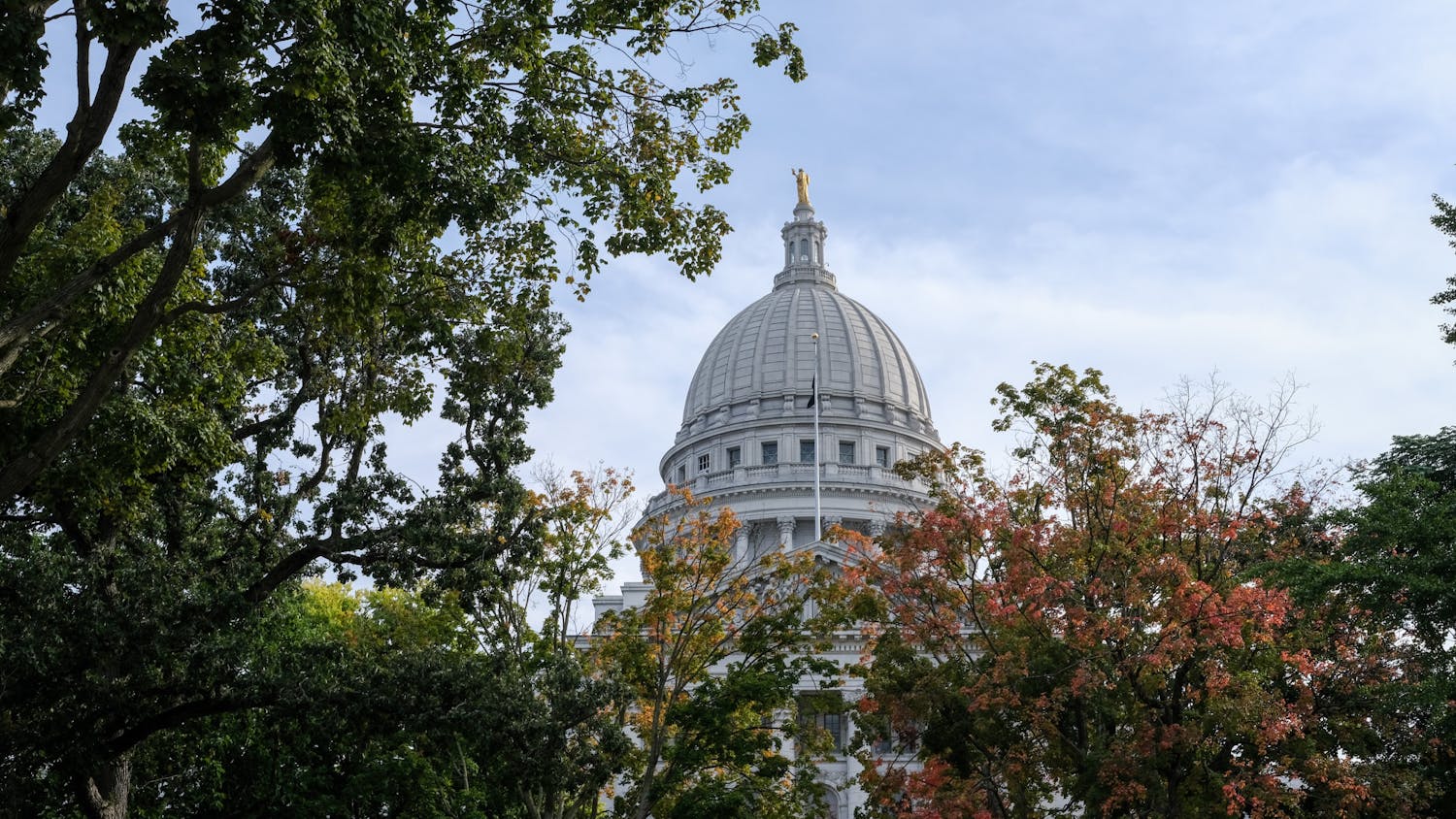Attending UW-Madison is not cheap. In fact, at $4,060 per year for in-state residents, it is relatively expensive compared to other public universities. The College Board's annual survey of tuition and financial aid estimates that the average cost of a year for an in-state resident at a four-year public institution is $3,754.
Yet, the expense of UW-Madison has typically been justified by the excellence of its education. In fact, compared to other Big Ten schools, UW-Madison is a great deal. Its programs are nationally acclaimed and attempts are made to hire the best faculty available.
Unfortunately, the benefit Wisconsin receives from a moderately inexpensive but academically strong state university is being placed in jeopardy by vindictive state legislators like Rep. Rob Kreibich, R-Eau Claire, who feel that by cutting state aid to the university, they are doing their constituents a favor.
They couldn't be further from the truth. Even a conservative stalwart like former Gov. Tommy Thompson realized that education and research are the two most important assets the state can cultivate. Cutting funding to the UW System and raising tuition will hurt every Wisconsin resident, even Kreibich's Republican supporters.
The reasons are quite simple. Almost every study of the root causes of poverty can be traced in part to poor education or a lack of educational opportunities. This trend has only been increasing during the last decade with blue-collar jobs going overseas or becoming obsolete. Some type of higher education is almost a necessity in order to make a successful middle-class living.
The increase in tuition suggested by the state Assembly represents a frontal assault on the educational opportunities of low-income Wisconsin residents. The decision to raise tuition above the level of inflation is like the atomic bomb of funding decisions. Unlike cutting a program or delaying a building project, tuition cuts don't go away. The effects of a tuition raise will be felt for years.
Unlike some tuition raises that compensate for the increase with more financial aid, these increases include no such saving grace. The raise is intended to make a quick profit for the university to temporarily offset the $120 million in cuts proposed by the Assembly.
It will be especially hard for out-of-state students, who will be charged a 10 percent, one-time tuition surcharge on top of an already approved 5 percent charge. According to UW System President Katherine Lyall, this will make out-of-state students think twice before considering UW-Madison.
As a result, the university might actually lose more money. Out-of-state students pay 160 percent of the cost of their education, which subsidizes the educational costs of in-state residents. Without the subsidy, more tuition raises for in-state students will be a necessity.
However, the true losers will be lower middle class families with multiple children of college age that just barely qualify for no-interest loans or work-study. They are the ones who will be priced out of a college education. According to the Advisory Committee on Student Financial Assistance, which advises Congress and the U.S. Department of Education, Wisconsin is part of a national trend of an increasing number of needy students being blocked from receiving a college education because of rising costs and the absence of need-based aid.
The state Assembly must find another way of making cuts to the UW System that will not deny educational opportunities to Wisconsin residents. A good place to start would be to return to Gov. Scott McCallum's original cut of $50.5 million, which would be on par with other Wisconsin government departments.
Also, the state legislature should adopt the lowest possible tuition cap to ensure that the UW Board of Regents do not take advantage of its power to raise tuition any further in the years to come. If cuts are needed, they should come at the expense of new buildings and superfluous administrative programs, rather than being hoisted on the backs of students.
The cost of out-of-state tuition must also be frozen to ensure that UW-Madison is still attractive to out-of-state residents. Last year, out-of-state students' tuition brought in $26 million, which could alone pay the educational costs of 5,200 in-state students. The UW System cannot afford to lose this money by driving away out-of-state students with 10 percent surcharges.
It is not an exaggeration to say that Wisconsin's future will depend on the strength of its premiere school. All of the rising industries in America depend on technology and research. If Wisconsin withdraws its commitment to higher education, companies will withdraw investment. In the end, even Kreibich's Republican constituents in Eau Claire will be hurt.
Raising tuition and cutting the UW System budget will only hurt the economic well-being of all of Wisconsin. Students represent the future of Wisconsin's economic success and they deserve to be treated better than a mere political football to be kicked around for extra votes.





